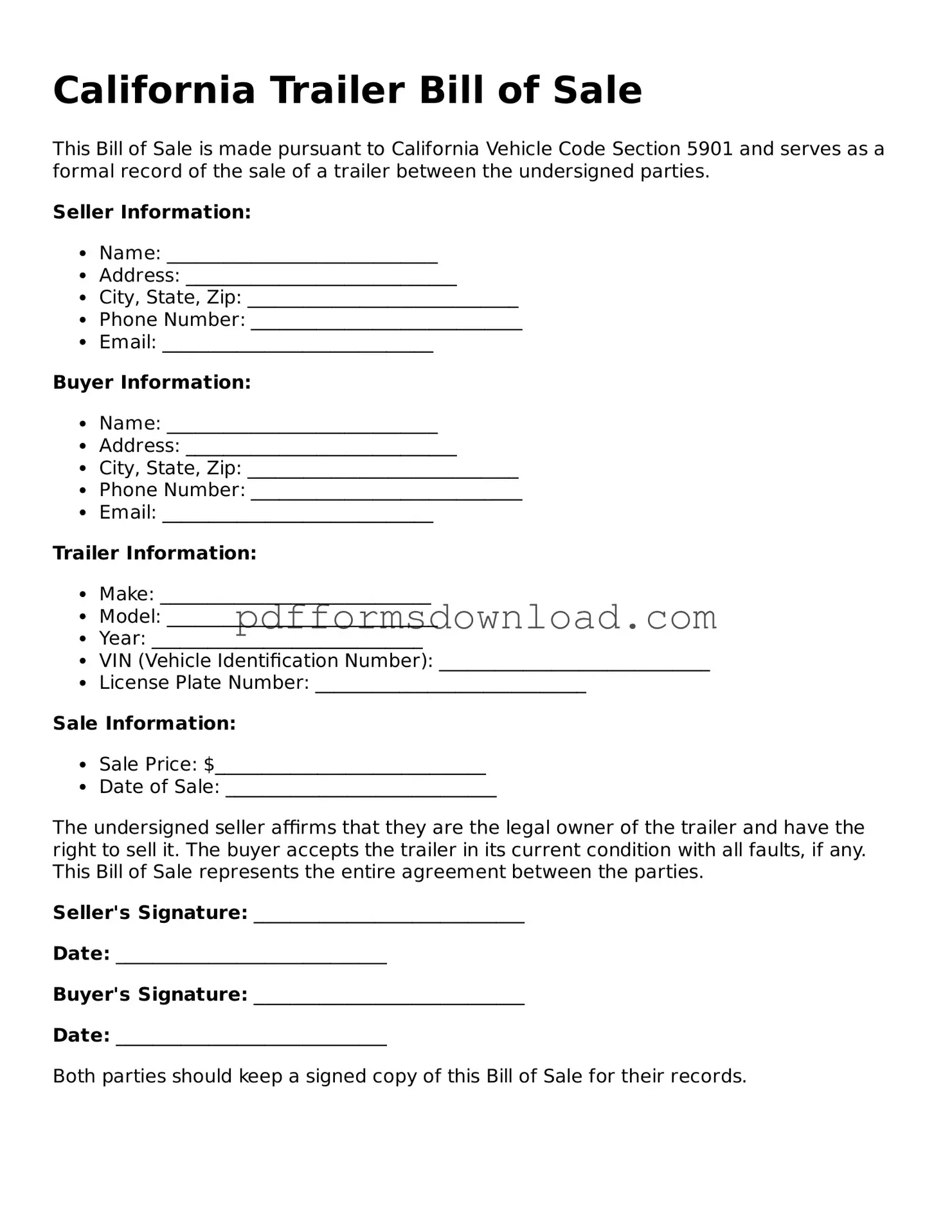Printable California Trailer Bill of Sale Form
The California Trailer Bill of Sale is a legal document that records the transfer of ownership of a trailer from one party to another. This form serves as proof of the transaction and includes important details such as the buyer's and seller's information, trailer description, and sale price. Understanding how to properly fill out this form is essential for ensuring a smooth transfer process.
Ready to get started? Fill out the form by clicking the button below!
Make This Document Now

Printable California Trailer Bill of Sale Form
Make This Document Now

Make This Document Now
or
Free PDF File
Your form is almost ready
Complete your Trailer Bill of Sale online — edit, save, and download easily.